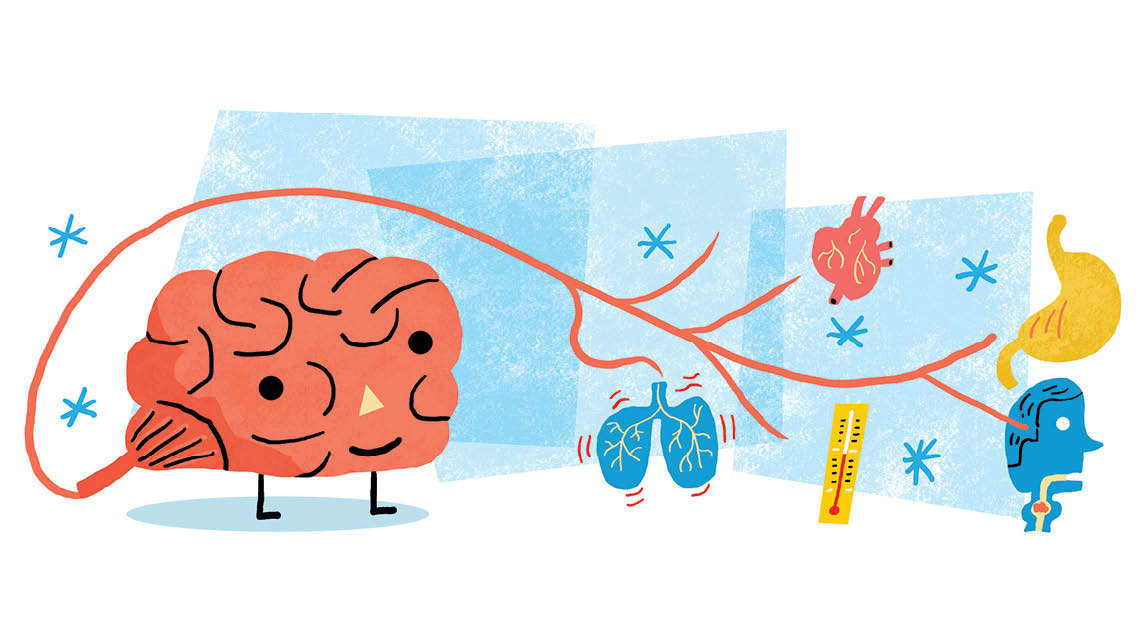There is a well in Scotland, called St. Maelrubha’s, where during the Middle Ages the water was reputed to cure insanity. Researchers later speculated that those cures might not have been purely mystical; the water may have contained lithium, a naturally occurring mineral that medical professionals now view as the gold standard for treating bipolar disorder.
The modern medical form of lithium uses lithium carbonate to help stabilize mood. It is potent, available only by prescription, and taken in high doses — around 1,000 mg per day. Prescription lithium is also associated with several risks and side effects, such as tremor, acne, fatigue, and, more concerning, impaired thyroid and kidney function.
Still, lithium comes in more than one form. Lithium orotate can also stabilize mood — and in a much gentler way than the carbonate version. It’s available over the counter and is taken in microdoses, much like the supplementary minerals zinc and selenium. It is considered safe, and I use it in my mental-health practice as a gentle support for people who are struggling with mood instability.
Minerals and Mood
Minerals are essential for most of the functions in the body and brain. Magnesium helps neurons reset after creating an electrical signal. Calcium is a key ingredient in bone tissue; it also plays a role in the function of neurons and neurotransmitters. Zinc helps regulate cellular metabolism, including in neurons.
These essential minerals keep the brain and the rest of the nervous system humming by producing energy, maintaining focus, or providing protection from toxins, including those from normal cellular metabolism.
Like these other minerals, lithium is present in trace amounts throughout the body. It is not essential to brain function, but it does play a salutary role in it. Low lithium levels may be associated with blood-sugar imbalance in insulin-sensitive tissues; developmental delay in children; and attention issues, nervousness, and insomnia.
How Lithium Orotate Works
Virtually all prescription psychiatric drugs work on the neurotransmitters, either by interacting with the receptors on the cell membrane of a neuron or by increasing the production of a certain brain chemical, such as serotonin or dopamine.
Lithium is different. This mineral gets inside of neurons, affecting their inner workings in ways that can greatly benefit mood. It supports the brain’s natural detoxification process and promotes the natural balance of brain neurotransmitters.
Even in microdoses, lithium orotate can help calm brain activity and promote mood stability. Recent research also suggests that lithium microdoses may help prevent degenerative conditions like Alzheimer’s disease.
When to Try Lithium Orotate
Lithium orotate may be most helpful for people with a strong family history of depression or manic depression, or whose problems with mood began early in life, especially when the condition recurs in the absence of obvious triggers.
I recommend it for anyone struggling with irritability, agitation, or frequent mood swings. One can also take microdoses of lithium as an adjunct to medications; it can help them work again when their effectiveness has begun to wane.
Lithium orotate doses are small, which is part of what makes this supplement so safe. Adults typically start with 10 mg daily for the first week or two, and then increase to 20 mg daily as needed.
For children, I usually start even smaller, with a 2.5 to 5 mg dose in liquid or tablet form, slowly increasing the dose to a maximum of around 10 mg daily until target symptoms show improvement.
Side effects are uncommon at such low doses, though slight sedation occasionally occurs. Taking the dose at bedtime can resolve this.
The only time I avoid recommending lithium orotate is when someone has kidney or thyroid problems, because the carbonate form can theoretically trigger issues with those. (Still, I have yet to see any significant problems with the microdose.)
For anyone who’s already taking any psychiatric medications, it’s always important to talk to your health professional before adding lithium orotate or any supplement.
This article originally appeared as “A Lighter Form of Lithium ” in the July/August 2022 issue of Experience Life.





This Post Has 2 Comments
Thank you for your research and insight. We need more gentle options for patients that they can tolerate.
I was excited to read about Lithium Orotate and it’s use for anxiety in other articles. I and all my family have struggled with anxiety since our teen years. Have you seen the microdose lithium help with anxiety or is it more for depression? I decided to give it a try for anxiety and also insomnia. I started with 5 mg and went up to 10 mg at bedtime and was feeling a noticeable lessening of anxiety and seemed to sleep better. The only problem I had was low blood sugar. I’m not diabetic but since I’m 62 I check my blood sugars every 6 months to keep an eye on it as I age. I was surprised to see my morning blood sugar was quite low (62) and gradually went up throughout the day. I stopped taking the lithium orotate and it was normal the next day. Have you seen this in any of your patients? I have been taking the 5 mg at bedtime for 2 weeks now and my blood sugar is fine but I’m not noticing much help with the anxiety.